Reviewed: Moussa Diakite; Conway & Zygier; Aziza; Tkay Maidza; Kieran
Malian-born guitarist, singer and songwriter Moussa Diakite’s citizenship down under doesn’t diminish his bona fides.
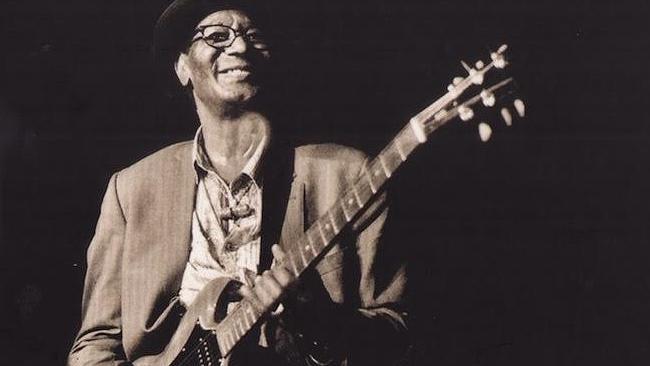
WORLD
Doncomodja
Moussa Diakite
Wassa/Planet
4 stars
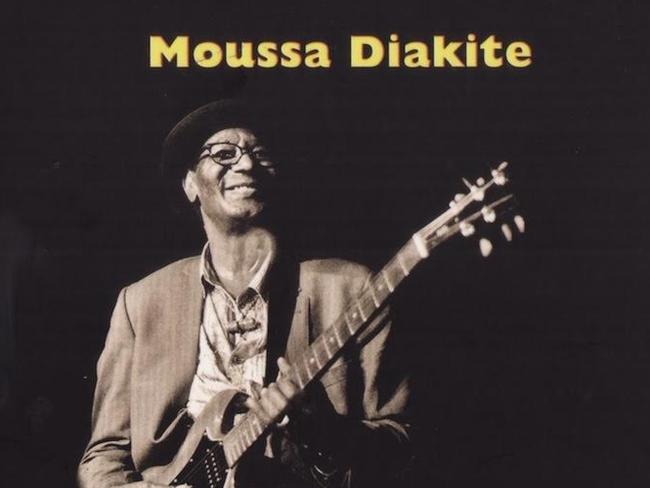
Any tendency to downgrade Moussa Diakite’s music on the grounds that he has called Australia home for more than 20 years would be disingenuous. The Malian-born and bred guitarist, singer and songwriter’s citizenship down under doesn’t diminish his bona fides. As his CV conveys, Diakite is much more torchbearer than spear-carrier. Before settling in Sydney in the mid-90s, he was an A-list axeman in West Africa, performing in seminal collectives such as the Super Rail Band and as sideman to legendary compatriots Salif Keita and Toumani Diabate. His unique Malian-styled guitar playing — informed by the Wassoulou traditions of the country’s southwest — has since been influential in the development of Australia’s African music scene, via Badema, Keyim Ba, Chosani Afrique and similar bands. Fronting long-running local trio the Afro-Jazz has helped hone a propensity for improvisation, a skill that’s manifest throughout the aptly titled Doncomodja (Mali Homecoming). Last year, with an Aussie rhythm section, Diakite returned to Mali to record his long-overdue solo album with a who’s who of local musicians in the nation’s capital, Bamako. Heading the guest list was Diabate, whose ability on kora (21-stringed harp-lute) pushes the guitarist to solo heaven in Miniamba, a jaunty Cuban/Caribbean accented song co-composed by Diakite that also features the soaring voice of Kasse Mady Diabate and two terrific female back-up singers. In other originals, the lively opener Dossoke and the slower desert blues-suffused Fula Folly, Diakite’s jazz and rock infused breaks are supplemented by Zoumana Tereta’s sawed one-string sokou fiddle and Tjigiba Barry’s traditional flute, and, in the latter, percussion from Souleymane Ann’s clicking calabash. In an eponymous instrumental tribute to Toumani Diabate, Lassana Diabate’s brilliant balafon playing offsets somewhat stereotypical rock licks. The wooden xylophone excels in a presto passage during another traditional piece, Super Kouladjan. The rapid ngoni playing of Bassekou Kouyate, with a nimble modern jazz break from Diakite, counterbalances a repetitious pop/rock riff in Commandment. Kouyate’s chops on the West African lute, supported by Djelimady Tounkara’s acoustic guitar and more serpentine lines from the leader, similarly lifts set sign-off Coucou Coucou, a track that showcases the soulful singing of Mountaga Diabate, an up-and-coming griot (hereditary minstrel). Diakite’s inspired guitar playing and Diabate’s soulful singing prove a winning combination in Siran Counteh. Atop, perfectly delivered by Mamadou Kouyate and female chorus over a circular Wassoulou guitar figure, has talking drum thrillingly jousting with djembe. All tracks on an album that exhibits admirable variety are expertly stoked by the band leader’s super-tight Sydney engine-room, drummer Ben Kidson and bassist Simon Olsen, who blend brilliantly with these West African all-stars.
Tony Hillier
*
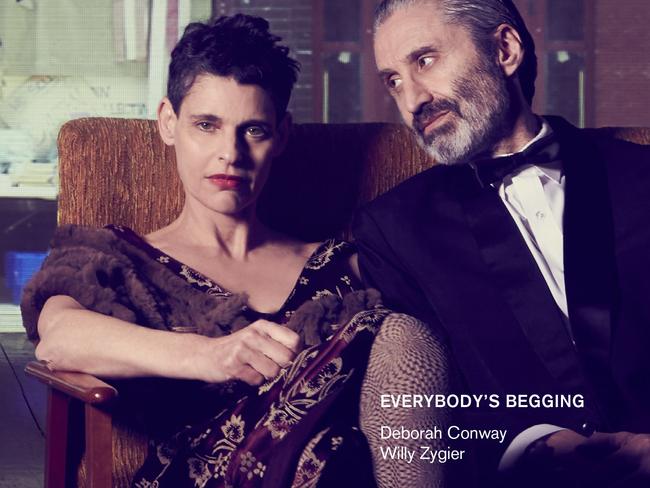
FOLK/ROOTS
Everybody’s Begging
Deborah Conway & Willy Zygier
MGM
5 stars
Deborah Conway’s latest album with her partner and musical collaborator Willy Zygier is a delightful stream of catchy, acoustic ballads that explore their Jewish roots. It’s not religious music, but there is a spiritual, bluesy feel. Zygier’s lyrics cover fundamentals for Jewish people — from atonement to why God seems to have forsaken them at key moments in history. There is a dark edge to Through Your Blood Shall You Live as Conway recounts the terror of wartime Budapest and As Sweet as Battles Won (“I was there at the camps, I was there at Babylon, I saw your face at Babi Yar”). But Conway sings of strength in the face of adversity too on We Walk the Wire. In the hands of others the effect of these 10 original songs with the acknowledged influences of Bob Dylan and Leonard Cohen might be too heavy, but Conway handles the words delicately, aided by some lovely melodies. She is gentle (“Love me sweet, love me long”) or raucous (“You hate the f..king Jews, but you always liked Bob Dylan”) as the mood suits. Zygier’s acoustic guitar, dobro and mandolin backing is masterful in its light, understated virtuosity. Subtle piano from Hue Blanes chimes in and out, and Conway is backed on a number of tracks by the unmistakable, exquisite harmonies of Vika and Linda Bull. The most striking ballad is Kol Nidre, named after the Aramaic prayer recited on the eve of Yom Kippur. Conway sings most sweetly and gently here, recounting how she has found a path, old steps to retrace, as familiar as her mother’s embrace.
Brad Norington
*
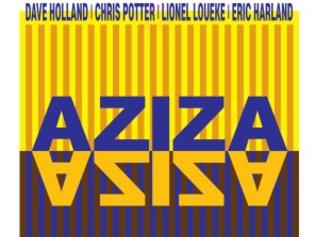
JAZZ
Aziza
Aziza
Dare2 Records
4.5 stars
This quartet is comprised of four stellar US musicians, all bandleaders, and each at the very top of their abilities, working beautifully together. The New York recording contains eight tracks featuring originals by each band member. In addition to saxophonist Chris Potter and guitarist Lionel Loueke, Dave Holland — Dare2 label owner — is on bass and Eric Harland on drums. The album title comes from Loueke’s native Benin, in Africa, where Aziza is the god of inspiration. The guitarist has forged a unique bridge between Benin’s musical traditions and his highly individual take on contemporary jazz. The opener, Loueke’s Aziza Dance, begins with a jazz-rock beat and inventive wah-wah guitar, before Potter’s theme establishment and right-on-the beat improv. That’s followed by Holland’s bass solo and the track concludes with Harland’s always inspired drum work. A walking bass could be expected in Holland’s Walkin’ the Walk and that bass line is certainly included, but there’s a lot more virtuoso bass work here along with Potter’s tenor sax and Harland’s driving rhythms and punctuations. Potter’s Blue Sufi opens with the sax playing a theme statement and solo, gradually assisted by the entire group as sax lifts off and guitar opens a repetitive chord sequence, mixing with hyper-busy drums to introduce the guitar’s quickening passage and Potter’s fast-moving conclusion. The final track, Sleepless Night, an insistent, force-driven piece by Loueke, features the guitarist’s overdubbed vocals in addition to his energetic instrumental unison with the sax. These four names will probably be sufficient to invite a listening for jazz fans where the spectrum of emotion and diversity of approach is bound to secure interest.
John McBeath
*

HIP HOP
TKAY
Tkay Maidza
Dew Process
4 stars
Tkay Maidza is the refreshing female voice of Aussie hip hop, a genre largely dominated by white men (360, Hilltop Hoods, Bliss n Eso, Illy and Drapht to name just a few). When 20-year-old Zimbabwe-born, Adelaide-raised Maidza was first played on Triple J in 2013 with her joyful banger Brontosaurus, what she offered was sweet relief. Not only was her music a welcome alternative to the Americanised tone of Australian export Iggy Azalea, but her gleeful personality was infectious, offering a different vibe to her male counterparts. Her debut studio album is unsurprisingly uplifting, vivacious and throbs with a fiery pulse. Opener Always Been establishes an energetic beat and is bursting with sharp lyrics. Carry On (featuring Killer Mike) is direct and explosive, while Simulation erupts with vibrant synths. State of Mind is dizzyingly syncopated and Supasonic contains rousing stop-start rhythms. Maidza’s themes aren’t overtly political and her lyrics aren’t angry, but the tone remains gritty and spirited. Her sound is reminiscent of British leading ladies M.I.A. and Charli XCX, typified by her pop, dance hall influences and expansive anthems. Maidza also has the same knack for snappy lyrical ostinatos, catchy choruses that can be easily chanted by her bouncing crowds. Her youthful personality connects the 14 tracks, charting the varied concerns of millennials such as herself. She’s defiant on Carry On, confident on Tennies, contemplative on At Least I Know, ambitious on Castle in the Sky, and apathetic on Monochrome. It’s exciting to consider whether her success will influence more young women into Aussie hip hop.
Emily Ritchie
*
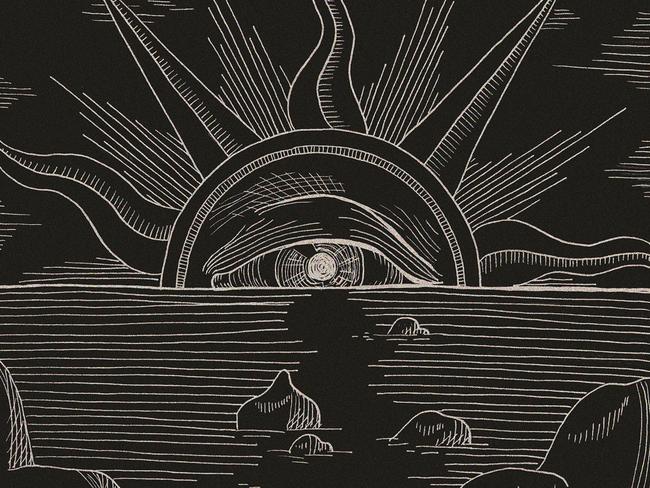
ELECTRONICA
Blinded by the Sun
Phil Kieran
Hot Creations
4 stars
Having plied his trade in the clubs of home town Belfast and across Europe for more than a decade, Phil Kieran has experienced first-hand the much-romanticised DJ lifestyle. It’s the darker side of this life that has inspired his fourth album. Blinded by the Sun is a metaphor for dance music; the star can be beautiful, but it can also burn you. From the excesses and temptations afforded by touring to after-parties and the occasional feelings of regret they generate, Kieran has used his experiences to create an honest, raw journey into house and techno. There are highs and lows, but the dark and brooding moments are outweighed by a sense of hope and empowerment, aided by Jess Brien’s solid vocals. Solar Storm is a moody opener marked by tribal drums, dark, pulsating effects and the pensive vocals of Zimbabwean Wilson Magwere. It, like the album title track with its leathery bass, guitar line and hypnotic vocals, evokes memories of the best of Massive Attack. On Make a Change, synths and drum-machine loops underpin a simple, positive mantra. The outer-worldly Realities Forgotten and the intense I Can’t Help Myself nod to the hedonistic experiences of the dance music lifestyle. Let It Go Away, meanwhile, is beautifully mellow, hopeful fare marked by snappy string elements. Find Love is an ambient, positive closer demonstrating Kieran’s production chops, cementing Blinded by the Sun as an immersive foray into lush electronica.
Tim McNamara



To join the conversation, please log in. Don't have an account? Register
Join the conversation, you are commenting as Logout